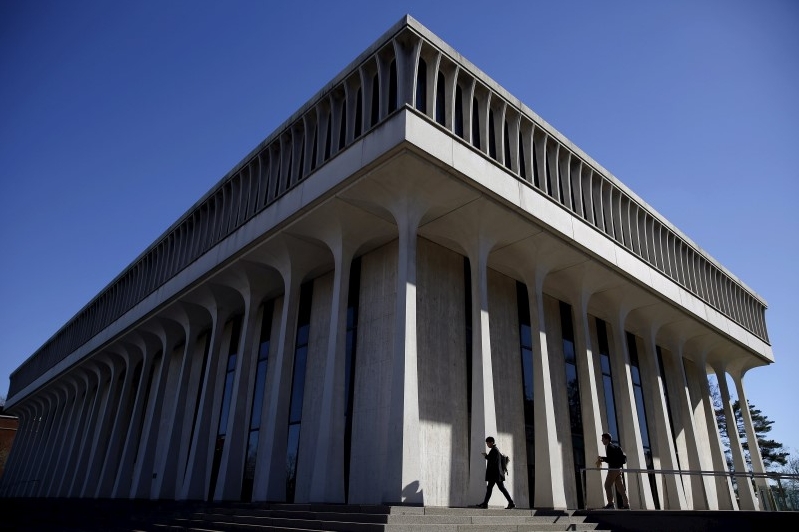
Princeton University has pledged to consider renaming buildings dedicated to former U.S. President Woodrow Wilson in the latest U.S. campus effort to quell student complaints of racism by tweaking names, titles and mascots.
A deal top administrators signed late Thursday with student demonstrators ended a 32-hour sit-in outside Princeton President Christopher Eisgruber's office.
At about the same time, a threat against the university triggered a campus-wide safety alert but on Friday was "deemed not credible," school security officials said.
Protest organizers at the Ivy League university in New Jersey urged Princeton to remove Wilson's name and image from its public spaces and from its Woodrow Wilson School of Public and International Affairs.
Wilson, the 28th U.S. president from 1913 to 1921, was a leader of the Progressive Movement but also supported racial segregation, which was legal and part of public policy at the time in the United States, particularly in southern states.
Segregation was banned under the 1964 Civil Rights Act.
Student organizers from the Black Justice League also want Princeton to institute a cultural competency and diversity training program and designate space on campus for "cultural affinity" groups.
Calls for the removal of Wilson's name from buildings and programs at Princeton, where he served as president from 1902 to 1910, arose during a wave of demonstrations at colleges over the treatment of minority students. Some aimed to show solidarity with students protesting the failure of administrators at the University of Missouri and Yale University to respond seriously to complaints of racial incidents on campus.
Changing attitudes and values involving race, gender and other issues have become a flashpoint on campuses and in cities nationwide. Historical figures honored with statues, statehouse portraits and dedicated streets and buildings are being viewed through a more critical lens.
Schools in recent years have widely recognized their mascots and athletic team nicknames showed an insensitivity to Native American tribes and made changes.
The University of North Dakota this week changed its nickname to "Fighting Hawks" from "Fighting Sioux" after the National Collegiate Athletic Association deemed the old moniker "hostile and abusive."
At Amherst College in Massachusetts, students and faculty are pushing for the small, elite liberal arts school to drop as its unofficial mascot Lord Jeff Amherst, who commanded British forces in North America during the French and Indian War and who is believed to have given blankets containing the smallpox virus to Native Americans. Trustees will discuss the issue in January, college spokeswoman Caroline Hanna said on Friday.
The newest dialogue about injustice on campus focuses on racism targeting African Americans.
Georgetown University in Washington, D.C., last weekend said it would rename two buildings named for school presidents who oversaw the sale of slaves to settle campus debt in the 1800s.
Yale University vowed this week to build a more inclusive school, in part by expanding financial aid to low-income students and creating a center for the study of race.
Princeton said this week it would change the title of those who oversee its residential colleges to "head" from "master."





![[Exclusive Interview] A revelation within the brink of life and death — Meg Leung’s mission in Christian art](https://www.gospelherald.com/media/cache/thumbnail/7/21/72163sp_273w_150h_1x_1y.jpg)

